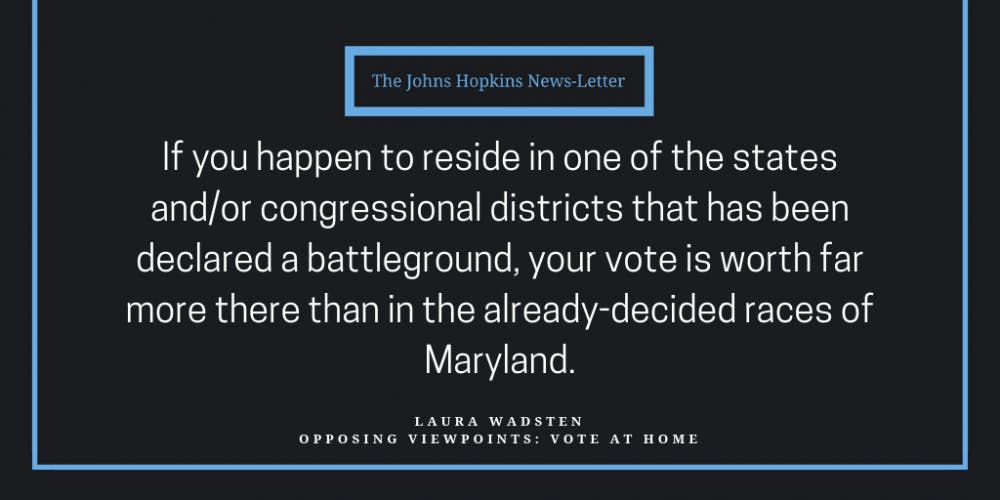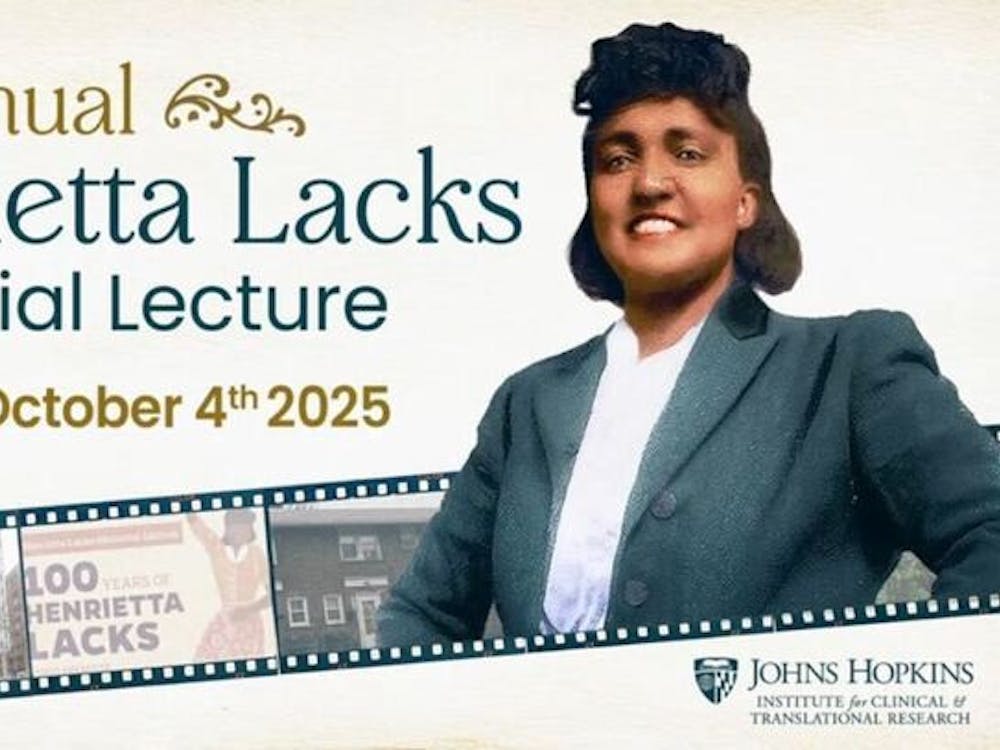The News-Letter is proud to introduce a new series: Opposing Viewpoints. This space is for students with diverse perspectives to answer pertinent questions in conversation with each other.
As November approaches, the call to vote is heard louder and louder. There is no question as to whether you should vote, but the decision of where to register to vote may not be as clear.
If you are from Maryland, the choice has been made for you. However, those of us who hail from other states have to decide between having a voice in the places where we reside for most of the year and the places that built us.
The political climate on a national scale is whirlwind and overwhelming. However, Maryland politics are relatively tame at the moment. The state does not have a single congressional race that has been deemed battleground. Additionally, Republican Governor Larry Hogan has an approval rating of 69 percent, with a 65 percent approval rating among Democrats. Due to the relative insignificance of Maryland’s elections this year, I will be voting in my home state and I urge other students from competitive states to do the same.
This November, all 435 House seats, 35 Senate seats and 36 gubernatorial seats are up for election. The state of Maryland will have eight U.S. congressional elections, one senatorial election and a gubernatorial race. While this may seem like a lot of seats, all of the congressional races are predicted to be won by the party of the incumbent by a comfortable margin, and incumbent Democratic Senator Ben Cardin’s re-election is considered a safe bet.
Meanwhile, there are 77 House races and 16 Senate races that have been deemed as battleground, meaning the elections will likely be extremely close. If you happen to reside in one of the states and/or congressional districts that has been declared a battleground, your vote is worth far more there than in the already-decided races of Maryland.
Congressional races this year are unprecedented, in that the highest number of incumbents are forgoing re-election since before 2012. Incumbents have a significant advantage over their opponents, with 2016 seeing a 98 percent incumbent re-election rate for members of the House of Representatives.
Lack of incumbency in an election leads to increased competition for a seat, and this year’s relatively low number of incumbents running means more elections will likely be closely contested, meaning every vote will count. Maryland, however, has only one district without an incumbent running and it isn’t the one where Homewood campus students reside.
Additionally, a quarter of the student body has been residing in Maryland for around a month, making them less likely to be well-versed in Maryland politics. Though we live here now, many of us are more familiar with the way policies would affect our home states because we lived there for much longer, and we likely still have close ties (i.e. parents or guardians). If you and/or your family pays taxes in another state, consider the implications of not voting in that state.
The #MeToo movement has resulted in a unique set of elections for 2018. This November, Michigan, New York, Pennsylvania, Minnesota and Mississippi will be holding special elections, four of them held to fill seats left vacant by resignations of Congressmen accused of sexual misconduct. As special elections result from seat vacancies, all of these seats lack incumbents and, as such, are highly competitive.
Georgia has the potential to elect the first African-American female governor in U.S. history. Michigan could put the first Muslim-American governor in office. Minnesota and Michigan are poised to send the first Muslim women to United States Congress. 2018 is a big year for politics, just not in Maryland.
In my home state of Minnesota, the elections of 2018 are high stakes with many predicted to be incredibly close. Minnesotan voters will be electing a governor, two senators, and eight congressmen. The gubernatorial race lacks an incumbent, Al Franken’s resignation over sexual harassment allegations resulted in a special election for a senate seat and three of the eight congressional districts have been deemed battleground with two lacking incumbents.
Minnesota has been my home, until about a month ago. While I am very excited to be in Maryland and learn more about this state, Minnesota’s elections are too high stakes for me to sit idly by and allow others to decide.
Laura Wadsten is a freshman majoring in Public Health and Writing Seminars from Brainerd, Minn. She is a member of the College Democrats.





